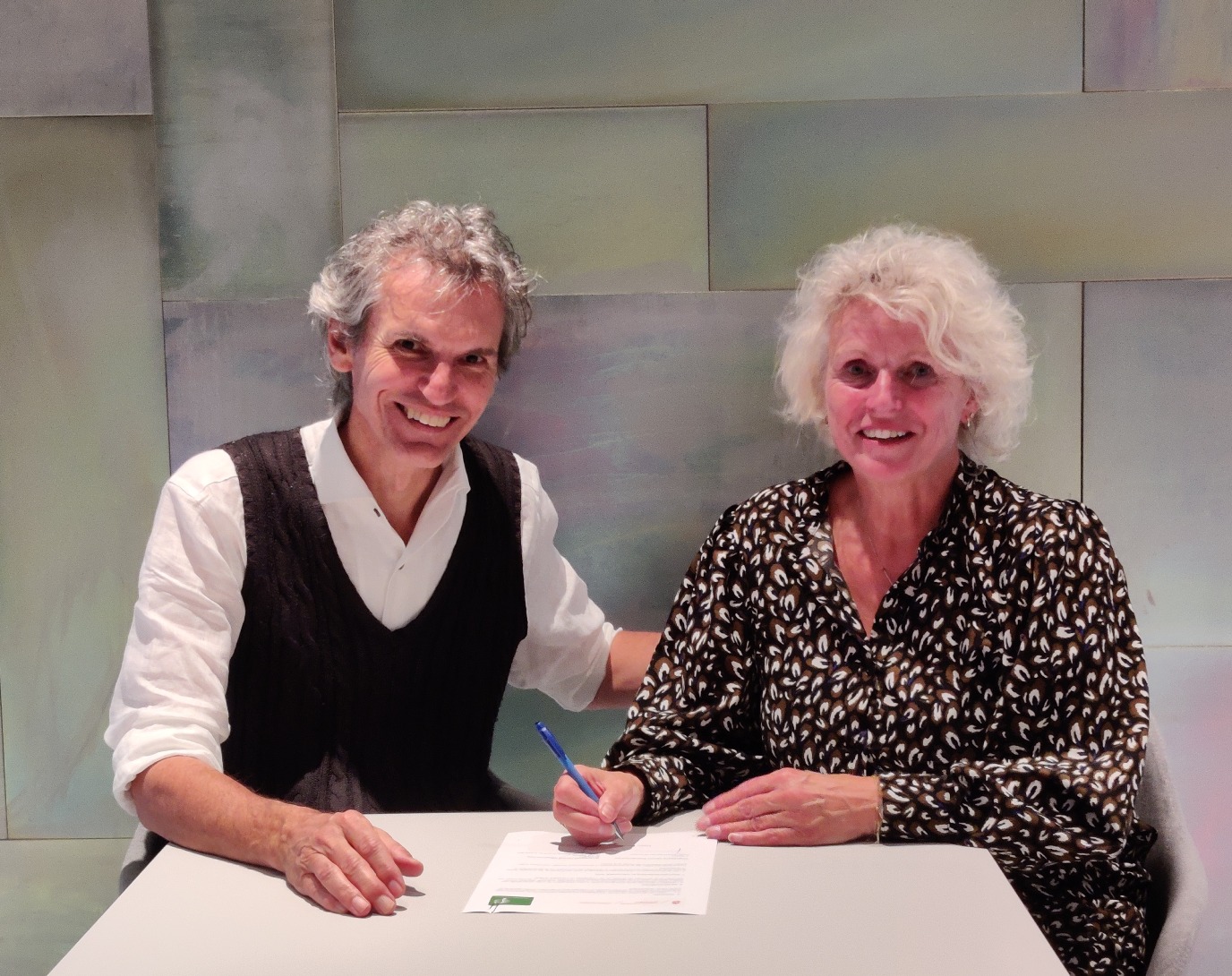Staatsbosbeheer and the Rudolf Agricola School join forces to conduct scientific research on sustainable nature and landscape development.

On Thursday 5 October, Jesler Kiestra and Frans J. Sijtsma signed a cooperation agreement (Memorandum of Understanding) between Staatsbosbeheer and the Rudolf Agricola School for Sustainable Development at the University of Groningen.
Both parties recognise an urgent societal need for scientific insights in the field of sustainability and the conservation, management, and development of nature.
|
Kiestra emphasises the importance of new scientific knowledge for Staatsbosbeheer:
‘In the sphere of nature management, as well as in the large programs and projects, there is a recurring need at Staatsbosbeheer for new knowledge to facilitate innovations and transitions in policy and governance, for dealing with ecological changes due to climate change, managing environmental pressures, addressing water issues, and establishing connections with the dynamics in the agriculture and food sector.'
Sijtsma adds:
‘Fellows from the Rudolf Agricola School for Sustainable Development at the University of Groningen work as scientists from various disciplines on scientific research in the field of nature and landscape. The urgent societal demand for scientific insights in sustainability acts as a significant catalyst for their collaboration, both with each other and with societal partners. Important topics where SBB and Agricola seek collaboration include transitional areas in the landscape around nature reserves on one hand and landscape reinforcement around urban areas on the other.’
Long-term research projects
The collaboration is aimed at long-term research projects, particularly in the northern region. The organizations will focus on themes such as establishing 'new commons,' sustainable landscape development, financial securing of nature and landscape, and 'living labs' around New Style National Parks, and in Groeningen.
In the upcoming years, Rudolf Agricola and Staatsbosbeheer will also collaborate on doctoral research regarding new financial instruments for landscape conservation. A doctoral candidate will be supervised by an interdisciplinary team of Agricola fellows, with Staatsbosbeheer facilitating close collaboration with the National Parks.
Additionally, Rudolf Agricola will involve Staatsbosbeheer in ongoing projects, including linking 'living labs' to area development, providing scientific advice, and participating in expert meetings.
Staatsbosbeheer will grant Rudolf Agricola access to research locations, experimental spaces, networks, and participation in strategic advice.
|
Rudolf Agricola: interdisciplinary research
The Rudolf Agricola School for Sustainable Development specializes in interdisciplinary research. The school brings together scientists from various disciplines to conduct research on sustainability. The school has four themes. Within the school, the theme Sustainable Landscapes focuses on practice-oriented research in the fields of ecology, socio-economics, politics and policy, cultural history, and spatial planning, with strong ties to the practice of nature and landscape management. Staatsbosbeheer: 120 years of experience With over 120 years of experience, Staatsbosbeheer is deeply embedded in society and plays a leading role in realizing societal challenges such as nature management and development, the establishment of national parks, the green metropolis, nature-inclusive agriculture, climate-resilient nature, and nature in and around urban areas. |
More news
-
15 September 2025
Successful visit to the UG by Rector of Institut Teknologi Bandung

